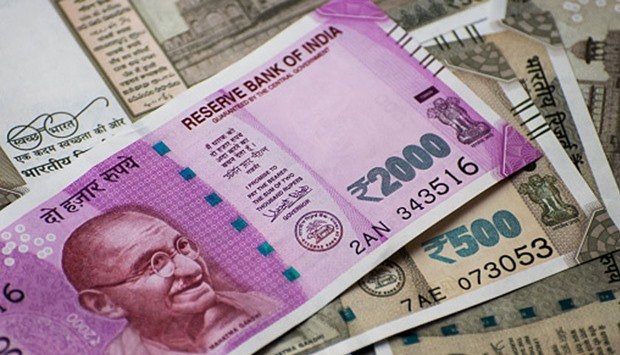Indian Pharma run rate slows down in Q2 2018
November 27, 2017 | Monday | Features
Financial analysts believe the sharp drop in pharma margins are due to regulatory and pricing challenges in the U.S market in addition to the changes created by GST implementation in India
Majority of Indian pharmaceutical companies have reported disappointing results in Q2 of FY 2018 compared to the same period last year. Financial analysts believe the sharp drop in pharma margins are due to regulatory and pricing challenges in the U.S market in addition to the changes created by GST implementation in India at the start of Q2 (July 2017). Although incremental approvals in other emerging markets have supported sales and earnings growth, regulated market sales are under pressure due to heightened competition, pricing pressure, diminishing exclusivity sales, appreciating rupee and delayed key product approvals.
Many financial analysts who forecast that the sluggish period will continue in FY 2018 attributed it to the current stressed environment in the pharma sector combined with the challenge of appreciating rupee. India's leading biophrama company Biocon posted 57.1% decline in profit compared to same period last year. Another pharma company, Strides Shasun PAT declined by 74% compared to Q2 previous year, while Wockdardt PAT declined 151.8% in Q2 of FY2018 compared to the Q2 FY2017. Similarly, Dr. Reddy's topline declined by 1.6%, Lupin recorded 7.9% reduction, Natco Pharma recorded 8.8% reduction and Wockdardt posted 4% reduction in their Revenue in FY2018 compared to FY2017.
Speaking on the weak quarterly Q2 results, Biocon chairperson and managing director Kiran Mazumdar-Shaw said, "Our overall earnings performance was muted on account of several specific factors. In particular, plant modifications undertaken to comply with regulatory requirements led to production disruptions. Additionally, we experienced regulatory and tender delays in some emerging markets for our biosimilars business. Malaysia facility costs and pricing pressures in our APIs (Active Pharmaceutical Ingredients) business continue to weigh. We expect these headwinds to ease by the end of this fiscal.”
According to a Credit Suisse report, Indian Pharma sector was expected to report weak Q2 earnings. Their global research team had observed that the companies which would buck this trend would be Cadila and Alkem Labs. Additionally, Dr Reddy’s Labs had reported a weak Q1 results, followed by insignificant recovery in Q2. Sun Pharma too expected earnings to be hit by notional forex loss at Taro, while Lupin also could report weak September quarter.
If we see the actual Q2 results, Cadila and Alkem performed in line with the Credit Suisse estimates, reporting an increase in profits of 32.5% and 13.63% over Q2 of 2016 respectively on robust sales. In contrast, other Indian pharma giants such as Sun Pharma, Dr. Reddy and Lupin suffered heavy losses in Q2. Sun Pharma reported decline in profit by 59.7% on weak US sales. Lupin reported 31% decline in the net profit again on account of weak US sales, despite strong performance in other markets. On the other hand, Dr. Reddy's profit dipped marginally 1.1% from Rs.309 Cr in Q2 2016 to Rs.305.4 Cr in Q2 2017.
“The sector is grappling with structural business challenges. FY18 is likely to be a disappointing year with rupee’s appreciation being an additional headwind along with business woes in US and India,” Edelweiss Securities said in its report.
According to India's leading pharma sector analyst from Mumbai who wished not to be named said, GST implementation has not affected pharma companies which are mainly involved in the export activity. “GST in a small way might have affect the smaller pharma companies who look at domestic market for their sales. One thing is very clear, most of the pharma majors have issues with US FDA clearance for their plants. In 2017, Sun Pharma, Lupin as well as Dr. Reddy’s have encountered issues with FDA approvals. We can clearly gauge the impact of FDA issues with these pharma giants after comparing their current quarterly results to the corresponding period last year.”
Mary Lou Valdez, the FDA's associate commissioner for international programs noted the strong growth in India's pharma market in her official blog. However, she also raised concerns over the quality. “Quality issues are an ongoing challenge for the Indian pharmaceutical industry,” Valdez said.
If India was to fully realize the potential as an important player in the global pharmaceutical industry, the country's regulatory infrastructure must keep pace with the global quality and safety standards are met, Valdez added.
Going forward
Analysts project the growth momentum of domestic pharma sector is likely to pick up in the next quarter. Experts feel that the profit after tax growth may be hit by price erosion in base portfolio, higher R&D cost and currency woes. The domestic pharma firms' sales in the US market have been impacted over the past few quarters because of slow approvals.
However, the growth momentum is expected to pick up from next quarter as US businesses are is expected to ramp up acceleration in Abbreviated New Drug Application (ANDA) approvals.









